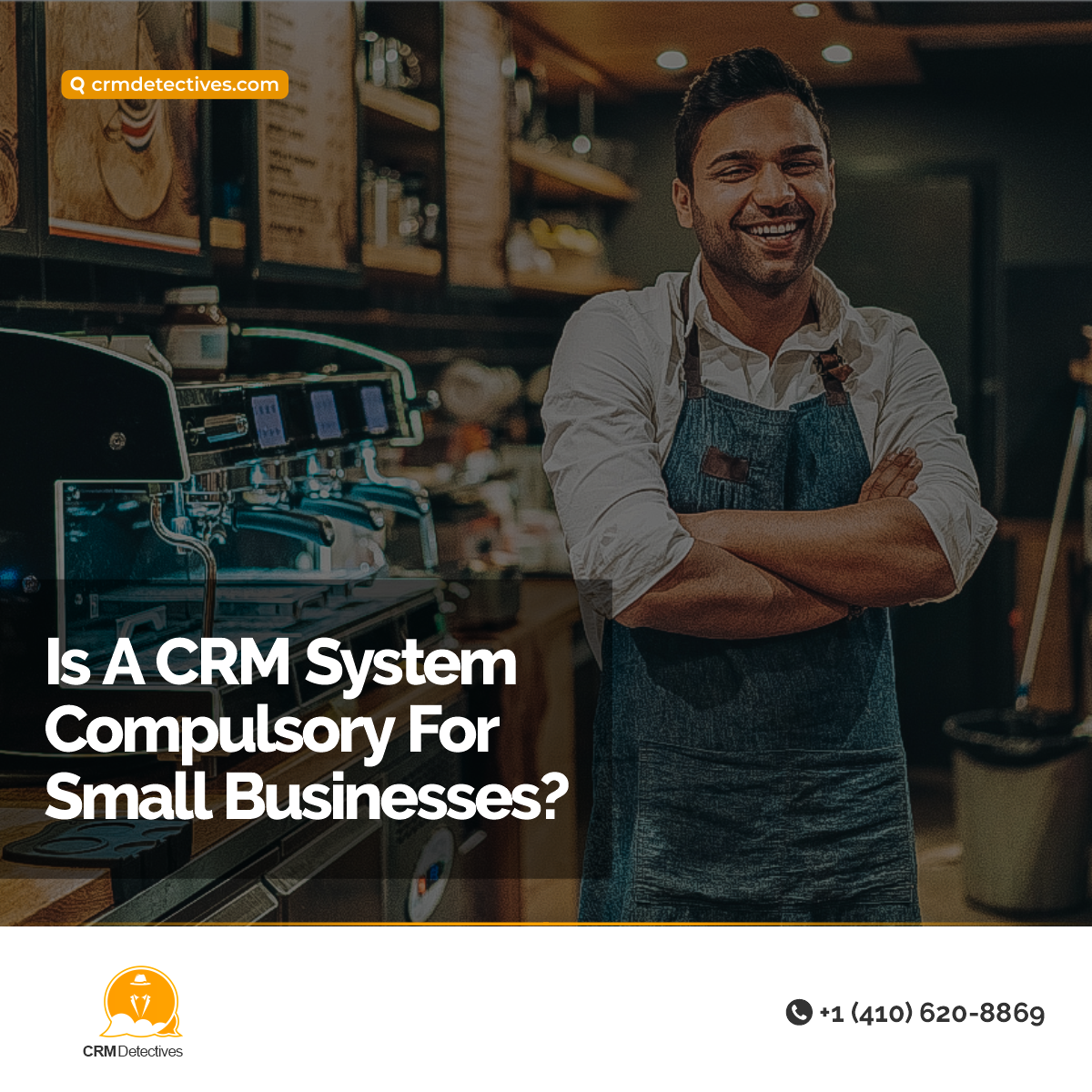In today's competitive business landscape, effective customer relationship management (CRM) is critical for success. Small businesses, in particular, must manage their customer interactions efficiently to thrive. This article explores whether a CRM system is essential for small businesses, weighing its benefits against potential drawbacks.
Summary
This article examines the necessity of CRM systems for small businesses, outlining their advantages, costs, and the key features they offer. It also discusses implementation challenges and integration with existing tools, providing a comprehensive overview to help small business owners make an informed decision.
CRM Systems for small businesses

CRM systems are designed to manage a company's interactions with current and potential customers. They centralize customer information, streamline processes, and enhance communication. These systems often include features for sales tracking, marketing automation, customer support, and data analytics.
For small businesses, a CRM can simplify the management of customer data, improve sales processes, and enhance customer service. By providing a holistic view of customer interactions, a CRM helps businesses build stronger relationships and improve customer retention.
Benefits of CRM Systems for Small Businesses

1. Centralized Data Management: A CRM system centralizes customer information, making it accessible to all team members. This ensures consistent and accurate data across the organization, facilitating better decision-making.
2. Improved Customer Relationships: By tracking customer interactions and preferences, businesses can offer personalized services, enhancing customer satisfaction and loyalty.
3. Increased Efficiency: Automation features in CRM systems streamline repetitive tasks, allowing employees to focus on more strategic activities. This boosts productivity and reduces operational costs.
4. Enhanced Marketing Efforts: CRM systems provide tools for targeted marketing campaigns, enabling businesses to reach the right audience with personalized messages, ultimately increasing conversion rates.
5. Better Sales Management: Sales teams can track leads, manage pipelines, and forecast sales more accurately with a CRM, leading to improved sales performance and revenue growth.
Cost Considerations

While CRM systems offer numerous benefits, they also come with costs that small businesses must consider. The initial investment includes software purchase or subscription fees, implementation costs, and potential customization expenses. Additionally, there may be ongoing costs for maintenance, upgrades, and training.
Despite these costs, many CRM providers offer scalable solutions with tiered pricing plans to accommodate businesses of different sizes and budgets. Some CRM systems, like HubSpot CRM, even offer free versions with essential features, making them accessible to small businesses.
Key Features of CRM Systems

1. Contact Management: Centralizes customer information, including contact details, communication history, and social media interactions.
2. Sales Management: Tracks leads, manages sales pipelines, and forecasts sales performance.
3. Marketing Automation: Automates marketing campaigns, email marketing, and lead nurturing.
4. Customer Support: Manages customer inquiries, support tickets, and service interactions.
5. Analytics and Reporting: Provides insights into customer behavior, sales performance, and marketing effectiveness.
Popular CRM Systems for Small Businesses

Several CRM systems are tailored to meet the needs of small businesses. Notable options include:
- HubSpot CRM: Known for its user-friendly interface and comprehensive free plan, HubSpot CRM is ideal for small businesses looking to manage their sales and marketing efforts without significant costs.
- Zoho CRM: Offers a range of features, including sales automation, marketing tools, and analytics, making it a versatile choice for growing businesses.
- Salesforce Essentials: A streamlined version of Salesforce's powerful CRM, designed specifically for small businesses with a focus on scalability and customization.
- Monday Sales CRM: Combines project management and CRM capabilities, providing a flexible solution for businesses that need to manage both tasks and customer relationships.
You can read up more about popular CRM systems for small businesses and their features to have a better understanding of what each offers and which best suits your business needs.
Implementation Challenges

Implementing a CRM system can present challenges for small businesses, including data migration, user adoption, and customization needs. Proper planning and execution are essential to ensure a smooth transition and maximize the system's benefits. Training employees and integrating the CRM with existing tools can also pose difficulties but are crucial for success.
Integrating CRM with Existing Tools
To maximize the value of a CRM system, it's important to integrate it with other business tools such as email platforms, marketing automation software, and accounting systems. Integration streamlines operations, reduces manual data entry, and provides a holistic view of customer interactions. Many CRM systems offer robust integration capabilities, making it easier for businesses to connect their existing tools.
CRM and Customer Experience

A well-implemented CRM system can significantly enhance the customer experience. By providing personalized interactions, timely follow-ups, and efficient service, businesses can build stronger relationships with their customers. CRM systems also help identify customer needs and preferences, allowing businesses to tailor their offerings accordingly.
Is CRM Worth the Investment for Small Businesses?

The burning question in a lot of hearts is whether the cost of a CRM system for a Small Business will be worth the investment. While the costs and implementation challenges may seem daunting, the benefits of a CRM system often outweigh these concerns. Improved efficiency, better customer relationships, and enhanced sales performance can lead to increased revenue and business growth. For many small businesses, investing in a CRM system is a strategic move that pays off in the long run.
Conclusion
A CRM system is not strictly compulsory for small businesses, but it offers significant advantages that can drive growth and success. By centralizing customer data, automating tasks, and enhancing customer interactions, a CRM system can help small businesses compete effectively in today's market. Careful consideration of costs, features, and implementation strategies is essential to choosing the right CRM for your business.
FAQs
Question 1: What is a CRM system?
Answer: A CRM (Customer Relationship Management) system is a software platform that helps businesses manage interactions with current and potential customers. It centralizes customer information, automates processes, and enhances communication.
Question 2: How can a CRM system benefit a small business?
Answer: A CRM system can improve efficiency, enhance customer relationships, streamline sales and marketing efforts, and provide valuable insights through data analytics. These benefits can lead to increased revenue and business growth.
Question 3: Are there affordable CRM options for small businesses?
Answer: Yes, many CRM providers offer scalable pricing plans to accommodate small businesses. Some, like HubSpot CRM, offer free versions with essential features, making them accessible without significant costs.
Question 4: What are the challenges of implementing a CRM system?
Answer: Challenges include data migration, user adoption, and customization needs. Proper planning, training, and integration with existing tools are crucial for a successful implementation.
Question 5: Can a CRM system improve customer experience?
Answer: Yes, a CRM system can enhance customer experience by providing personalized interactions, timely follow-ups, and efficient service. It helps businesses understand customer needs and preferences, leading to better customer satisfaction and loyalty.

I found this article on CRM systems for small businesses incredibly informative. The detailed overview of the benefits, costs, and key features really helped me understand how a CRM system can enhance customer relationship management in my business. The section on implementation challenges and integration with existing tools was particularly enlightening.